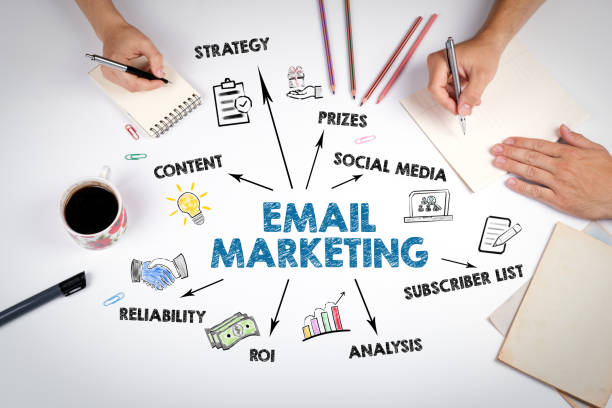In the digital real estate market, effective marketing and SEO are vital to standing out from the competition. From optimizing your website for search engines to leveraging content marketing and social media, a strong digital presence can attract buyers, sellers, and investors. This guide provides actionable strategies to enhance marketing and SEO for real estate websites.

SEO Strategies for Real Estate Websites
Search Engine Optimization (SEO) is the foundation of online visibility. Optimizing your real estate website ensures it ranks higher in search results, attracts organic traffic, and generates leads.
Keyword Research and Targeting
Keyword research is the starting point for SEO.
- Identify Keywords: Use tools like Google Keyword Planner or SEMrush to find high-volume, low-competition keywords related to real estate.
- Examples: “homes for sale in [city],” “real estate agents near me,” “luxury apartments for rent.”
- LSI Keywords: Include related terms such as “property listings,” “mortgage calculator,” and “homebuyer tips” for semantic relevance.
- On-Page Optimization: Use primary keywords in titles, meta descriptions, headings, and alt text for images.
Local SEO
Real estate is inherently local, making Local SEO crucial for connecting with nearby buyers and sellers.
- Google My Business (GMB): Optimize your GMB profile with accurate business details, property photos, and client reviews.
- Citations: List your website on local directories like Yelp, Zillow, and Realtor.com to improve visibility and credibility.
- Local Keywords: Target location-specific keywords such as “houses for sale in [neighborhood].”
Backlink Building Strategies
Building high-quality backlinks boosts your website’s authority and improves search rankings.
- Guest Blogging: Write articles for local real estate blogs or news sites.
- Local Partnerships: Collaborate with local businesses for cross-promotion.
- Content Sharing: Share valuable resources like market reports to earn natural backlinks.

Content Marketing for Real Estate
Content marketing helps establish authority, build trust, and engage your audience. By providing valuable insights, you can attract more visitors and convert them into clients.
Blogging Ideas
Real estate blogs are a great way to showcase expertise and address client concerns.
- Local Market Trends: Analyze property prices, demand, and upcoming developments.
- Tips for Buyers and Sellers: Offer advice on staging homes, negotiating deals, and navigating the buying process.
- Neighborhood Guides: Highlight schools, parks, and amenities to attract families and investors.
Video Marketing
Video content is a powerful tool for real estate marketing.
- Property Walkthroughs: Showcase listings with virtual tours, focusing on unique features.
- Agent Introductions: Build rapport by sharing videos about your experience, approach, and success stories.
- Educational Videos: Create how-to guides for first-time buyers or real estate investors.
Social Media Integration
Social media platforms like Instagram, Facebook, and LinkedIn are invaluable for real estate marketing. They enable you to engage with a broad audience and promote listings effectively.
Best Practices for Real Estate Platforms
- Visual Content: Use high-quality images and videos of properties to captivate users.
- Consistent Posting: Maintain an active presence by posting updates, market trends, and client testimonials regularly.
- Engage with Followers: Respond to comments, answer queries, and participate in local community groups.
Suggested Posts:
Paid Ads vs. Organic Engagement
- Paid Ads: Platforms like Facebook Ads and Google Ads offer targeted campaigns to reach potential buyers.
- Example: Promote open houses or specific property listings.
- Organic Engagement: Build trust by sharing informative content, hosting live Q&A sessions, and interacting with followers.

Email Marketing
Email marketing is a cost-effective way to nurture leads and maintain relationships with past clients.
Newsletter Ideas
- Market Updates: Share monthly updates on property prices, mortgage rates, and local trends.
- Featured Listings: Highlight new or premium properties in your inventory.
- Tips and Guides: Provide actionable advice tailored to buyers, sellers, or investors.
Automated Follow-Ups for Leads
Automation tools can streamline lead management.
- Welcome Emails: Send personalized emails to new subscribers with useful resources.
- Drip Campaigns: Use a series of emails to guide prospects through the buying or selling process.
- Follow-Up Reminders: Automatically check in with leads who showed interest in specific properties.
FAQs
What is the importance of SEO for real estate websites?
SEO improves a website’s visibility on search engines, attracting organic traffic and generating leads.
How can I use local SEO for real estate?
Optimize your Google My Business profile, target location-specific keywords, and list your website on local directories.
What content should I include in real estate blogs?
Focus on local market trends, neighborhood guides, and tips for buyers and sellers to provide value to your audience.
What are the best social media platforms for real estate marketing?
Instagram, Facebook, and LinkedIn are highly effective for promoting listings and engaging with potential clients.
How do I create an effective email marketing campaign for real estate?
Use newsletters to share market updates, featured listings, and buyer/seller tips while automating follow-ups for leads.
What tools can help with marketing and SEO for real estate websites?
Platforms like SEMrush (SEO), Mailchimp (email marketing), and Canva (content creation) are great for real estate marketing.
Key Takeaways
- SEO Focus: Use keyword research, local SEO, and backlink strategies to improve your website’s visibility.
- Engaging Content: Blogs, videos, and neighborhood guides help attract and retain an audience.
- Social Media Strategy: Combine paid ads with organic engagement to maximize reach and lead generation.
- Email Marketing: Automate campaigns to nurture leads and maintain long-term client relationships.
- Integrated Approach: Combining SEO, content marketing, and social media ensures a comprehensive strategy for real estate success.
